What if you could pinpoint exactly which ads are driving sales? In the ever-evolving landscape of digital marketing, understanding the impact of your campaigns is more crucial than ever. However, with the vast amounts of data generated from various channels, many marketers find themselves overwhelmed. The challenge lies not only in collecting this data but in transforming it into actionable insights that can drive successful campaigns.
According to recent studies, a staggering 60% of marketers report struggling with data overload, which often leads to analysis paralysis. As the market increasingly shifts towards data-driven decisions, it's essential to have the right tools to decipher this information effectively. This is where analytics for marketers come into play, offering a way to measure and optimize campaigns across multiple platforms.
With the right analytics tools, marketers can not only track performance but also gain insights into customer behavior, optimize ad spend, and ultimately improve ROI. By the end of this article, you’ll know exactly how to leverage the best analytics tools available to maximize your marketing efforts. Let's dive into the top 8 analytics tools that can help you elevate your marketing strategy.
Best for: Comprehensive tracking and attribution across all marketing channels.
Cometly is a leading analytics platform that integrates various marketing channels to provide a full view of customer interactions.
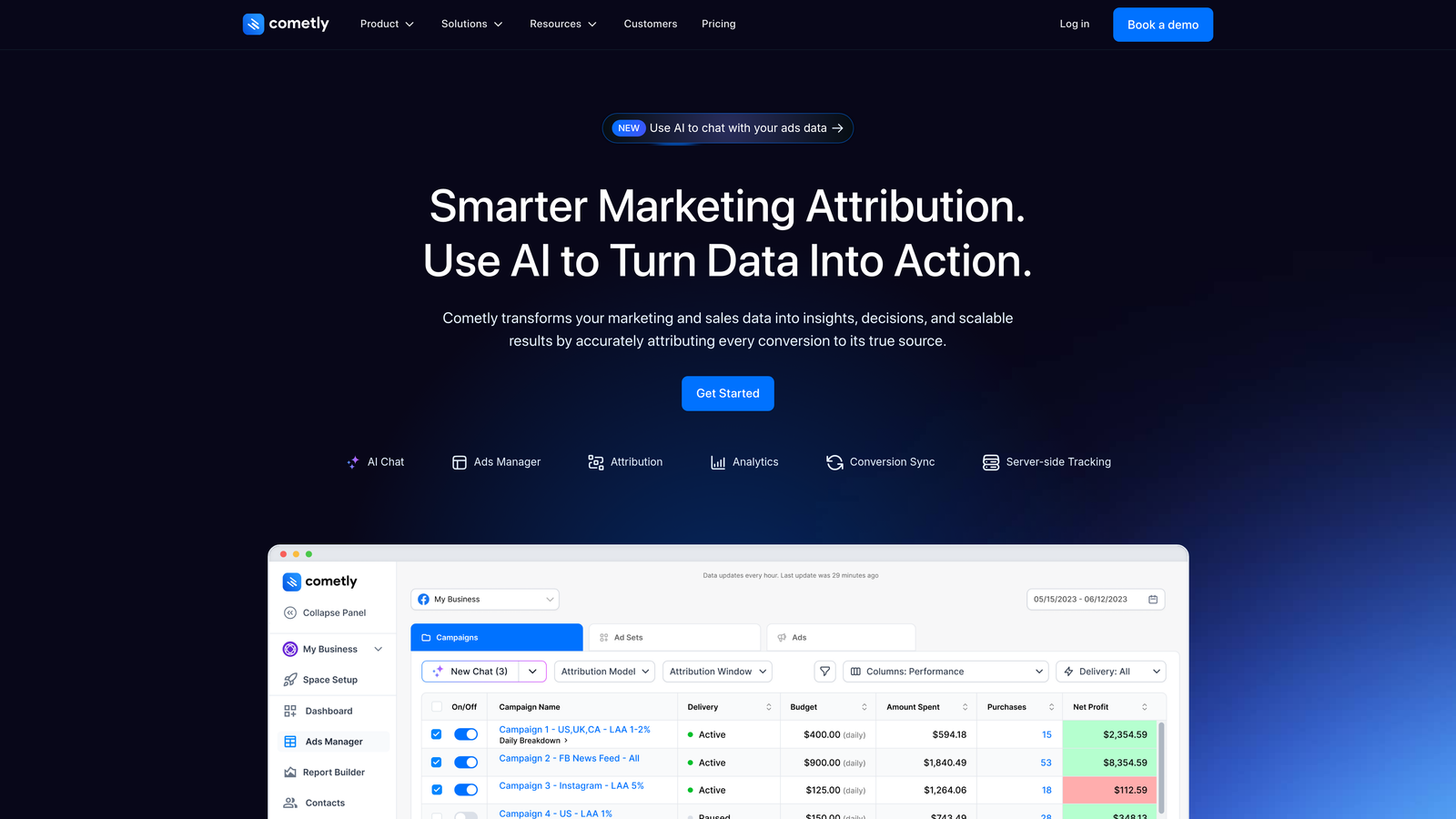
Cometly stands out in the crowded analytics landscape by offering a unique multi-touch attribution approach. This means it captures every interaction a customer has with your brand, from the first ad click to the final conversion. By doing so, it provides marketers with a holistic view of their customer journeys, allowing for more accurate measurement of campaign success.
1. Multi-Touch Attribution: Cometly allows you to see how different marketing channels contribute to conversions, rather than just crediting the last click.
2. AI-Driven Recommendations: The platform uses artificial intelligence to analyze data and suggest which ads and campaigns to scale based on performance.
3. Real-Time Analytics: With Cometly, marketers can access real-time data, making it easier to adjust campaigns on the fly.
After integrating Cometly with your ad platforms and CRM, the tool begins tracking customer interactions. It connects data points to provide insights into which strategies are most effective, helping marketers make informed decisions.
Cometly offers various pricing tiers depending on the size and needs of your organization, ensuring scalability as your marketing efforts grow.
Cometly is particularly beneficial for marketers looking to connect their ad platforms, CRM, and website data into one coherent system that tracks the entire customer journey. This comprehensive view allows for better decision-making and more effective campaign strategies.
Best for: Small to medium-sized businesses looking for robust analytics without the cost.
Google Analytics 4 is the latest iteration of Google's analytics platform, designed to provide a deeper understanding of user behavior.
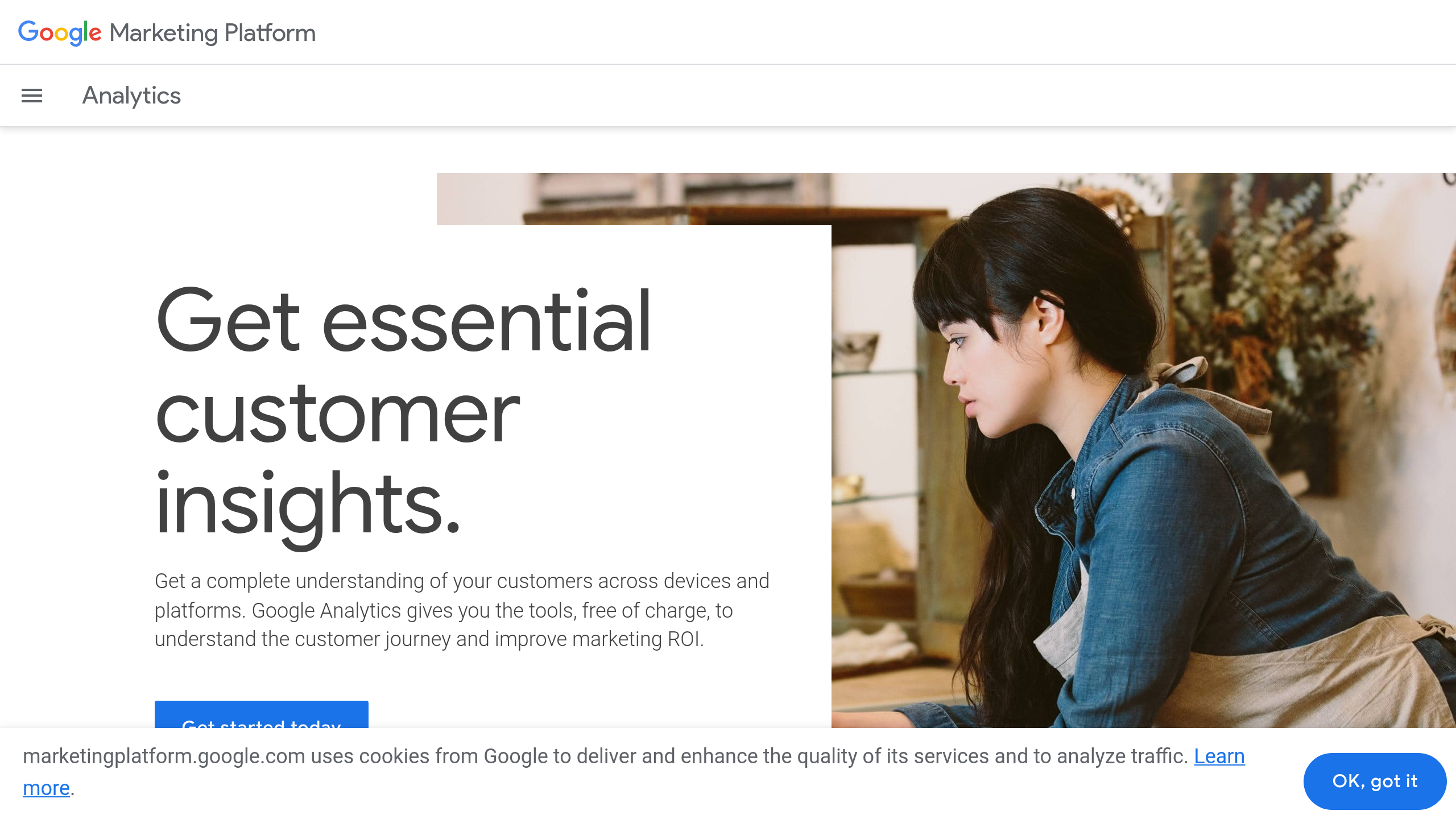
Google Analytics 4 (GA4) represents a significant shift in how marketers can collect and analyze data. By focusing on events rather than sessions, GA4 allows businesses to track user interactions across multiple devices and platforms, providing a more comprehensive view of customer journeys.
1. Event-Driven Data Model: GA4's new model focuses on events, allowing for more granular tracking of user interactions.
2. Enhanced Privacy Features: With growing concerns around data privacy, GA4 includes features that help businesses comply with regulations while still gathering useful insights.
3. Cross-Device Reporting: This feature enables marketers to see how users interact with their brand across different devices, essential for understanding multi-platform engagement.
Setting up GA4 involves defining key events you want to track, such as clicks, downloads, or purchases. Once configured, GA4 collects and analyzes this data, providing actionable insights through its user-friendly dashboard.
Google Analytics 4 is free to use, which makes it accessible to businesses of all sizes, especially startups and small to medium-sized enterprises.
With its robust feature set and zero cost, GA4 is an excellent choice for marketers looking to gain insights into their audience's behavior without breaking the bank. Its event-driven approach enables a more detailed analysis of how users interact with their brand.
Best for: Large organizations needing advanced analytics capabilities.
Adobe Analytics provides robust data analytics capabilities tailored for enterprise-level needs.
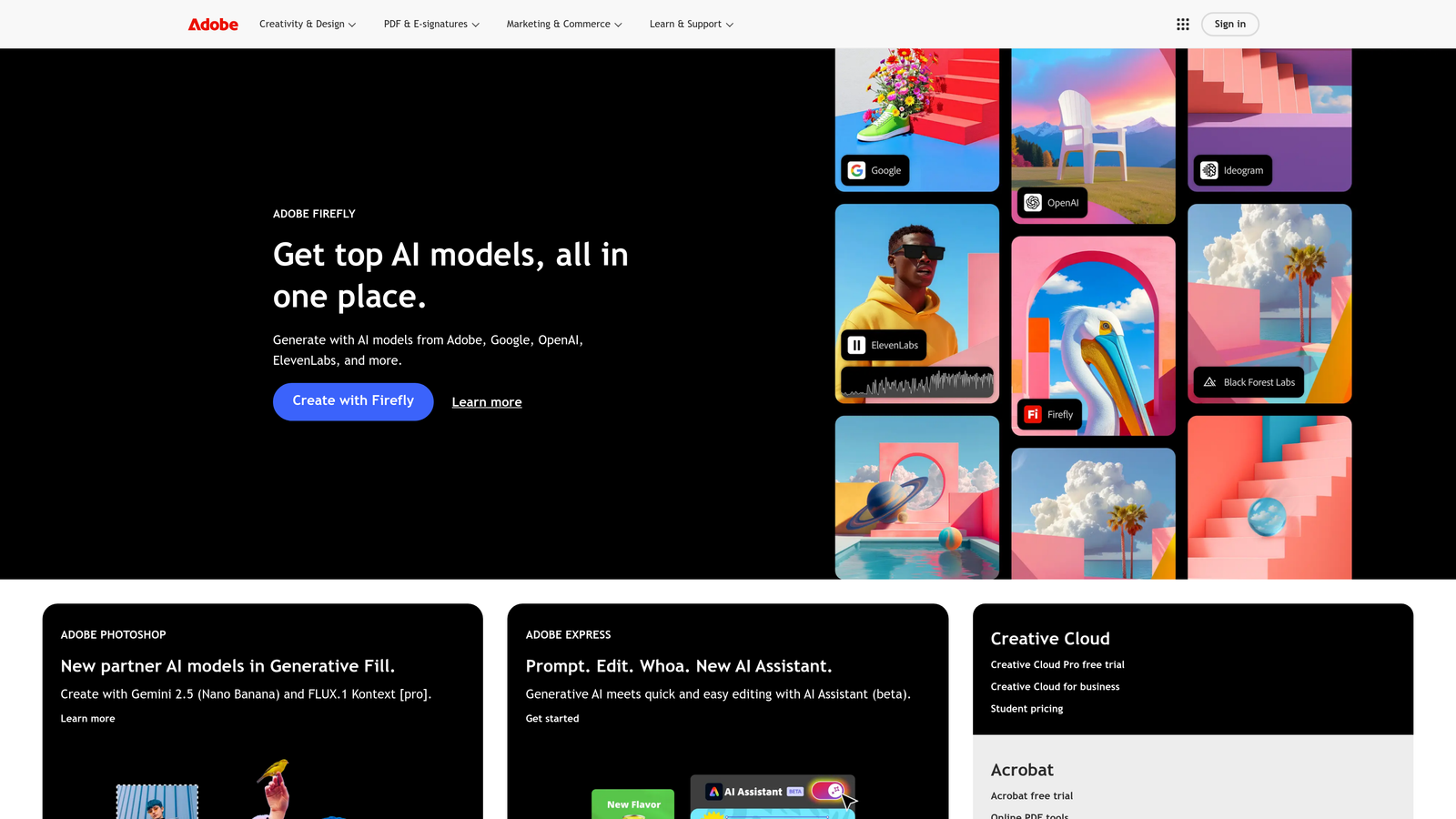
Adobe Analytics is designed for businesses that require in-depth analytics and data segmentation. It offers powerful features that allow marketers to analyze customer journeys and gain predictive insights for future campaigns.
1. Predictive Analytics: Adobe Analytics utilizes machine learning to forecast future trends based on historical data.
2. Custom Dashboards: Users can create tailored dashboards that focus on key performance indicators specific to their business goals.
3. Integration with Adobe Experience Cloud: Seamlessly connects with other Adobe products, enhancing its capabilities for comprehensive marketing strategies.
Adobe Analytics integrates with various data sources and uses advanced algorithms to process this information, providing marketers with deep insights into customer behavior and campaign performance.
Pricing for Adobe Analytics varies based on the features and level of service required, making it suitable for larger enterprises with specific needs.
Adobe Analytics is particularly valuable for organizations that need detailed insights and custom reporting. Its predictive capabilities allow marketers to stay ahead of trends and optimize their strategies accordingly.
Best for: Businesses seeking a comprehensive marketing platform that combines analytics with automation.
HubSpot Marketing Hub integrates marketing automation tools with powerful analytics features.
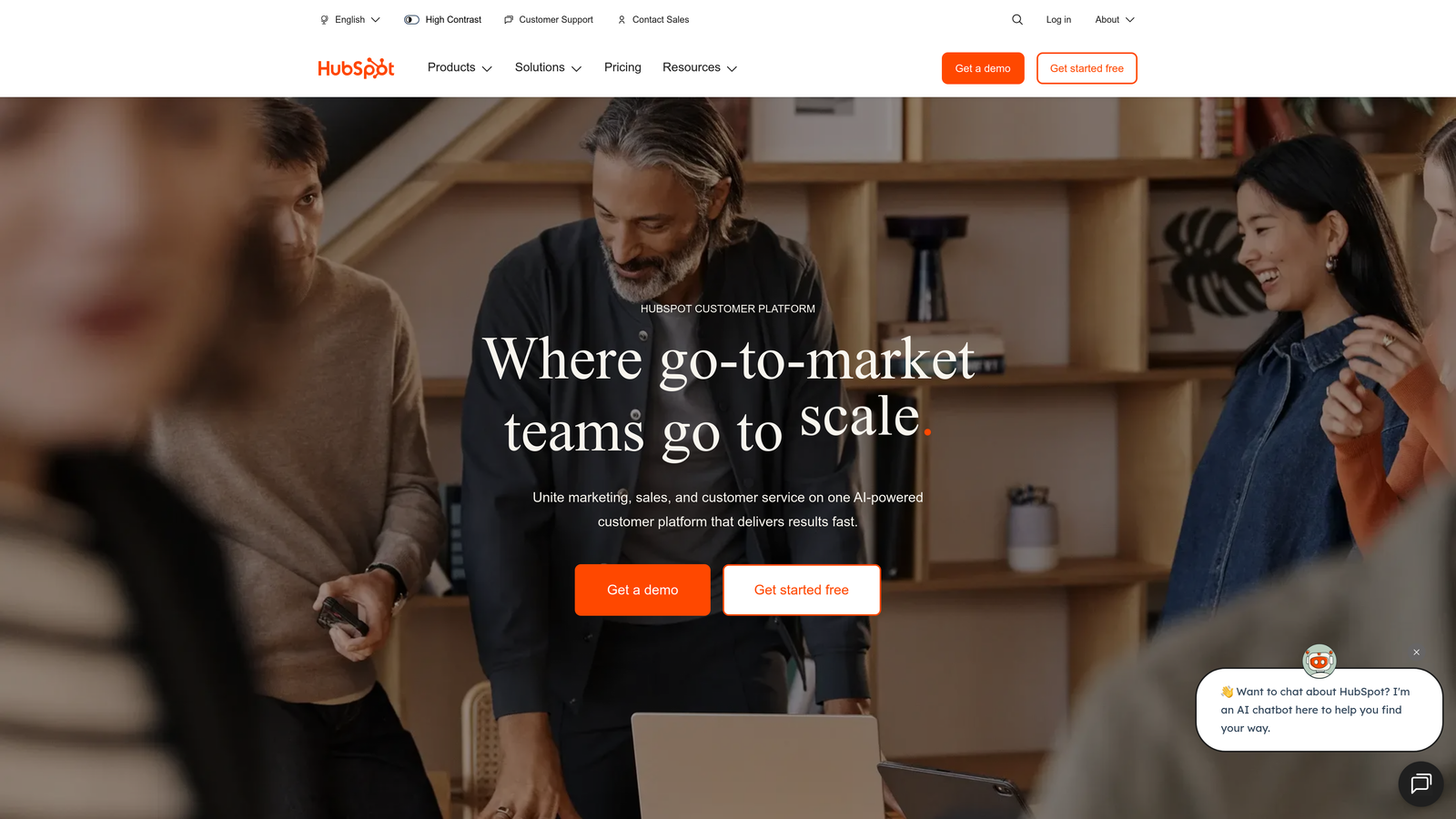
HubSpot Marketing Hub provides a suite of tools designed to streamline marketing efforts, from automation to analytics. This all-in-one platform helps marketers manage and analyze campaigns within a single dashboard.
1. Lead Scoring: HubSpot allows marketers to score leads based on their interactions, helping prioritize follow-ups.
2. Customer Journey Tracking: This feature enables marketers to visualize the customer journey, making it easier to tailor strategies for different stages.
3. Integrated CRM: HubSpot’s CRM features allow for seamless integration of marketing and sales data, enhancing overall visibility.
After setting up HubSpot, marketers can begin creating campaigns, automating emails, and tracking performance metrics all in one place. This integration simplifies data management and reporting.
HubSpot offers a variety of pricing tiers, including a free version with essential features, making it accessible for businesses of all sizes.
HubSpot’s integration of analytics with marketing automation makes it an ideal solution for businesses looking to optimize their marketing efforts efficiently. Its user-friendly interface allows marketers to quickly adapt and refine their strategies.
Best for: Tech companies and startups focused on product analytics.
Mixpanel focuses on product analytics and user engagement tracking.
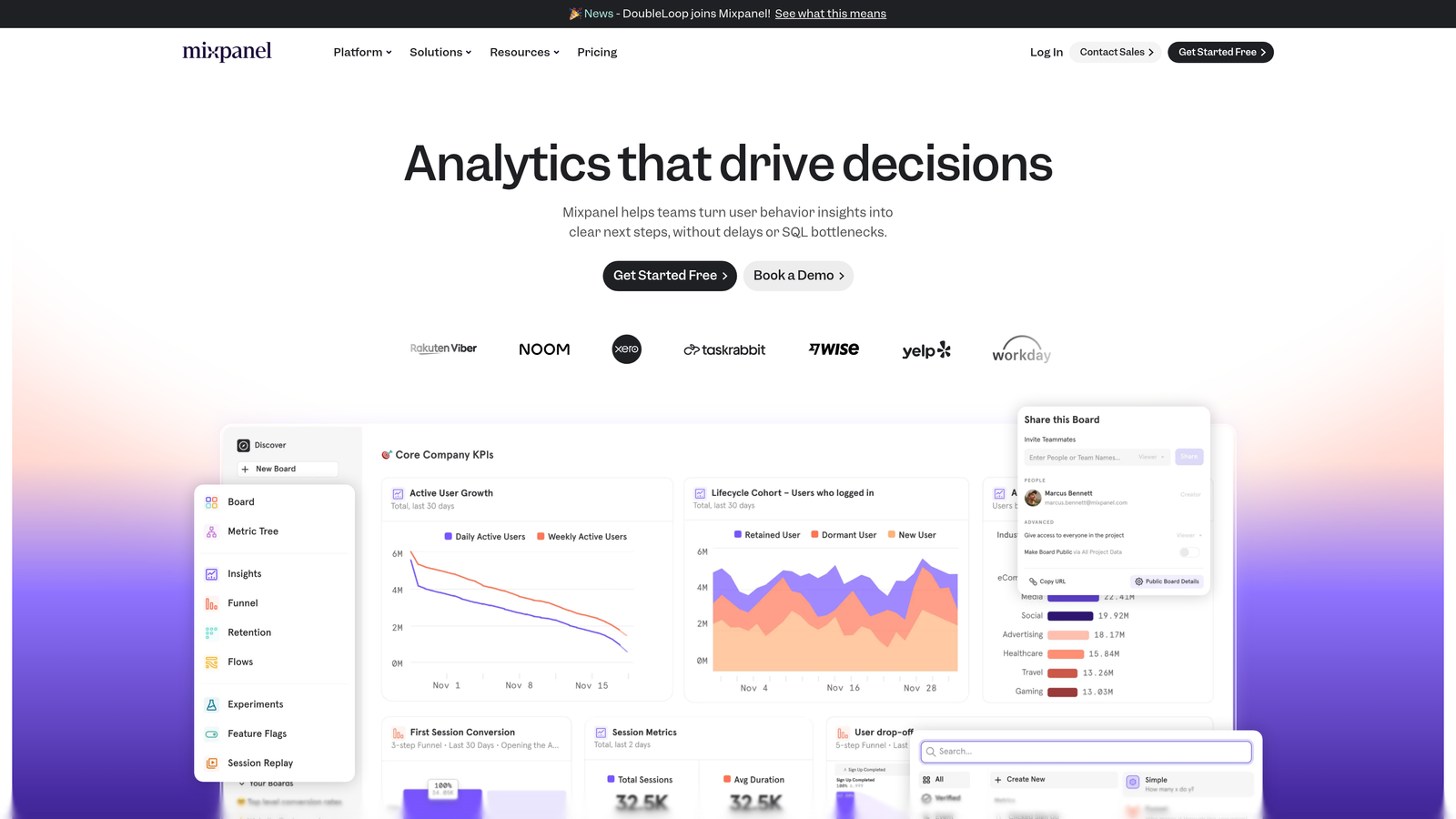
Mixpanel specializes in understanding user behavior, providing insights that help businesses improve product engagement. This tool is particularly effective for companies looking to optimize their apps or websites based on user interactions.
1. Cohort Analysis: Mixpanel allows users to segment their audience based on specific behaviors, enabling targeted marketing efforts.
2. A/B Testing: This feature lets marketers test different versions of their product to determine what resonates best with users.
3. User Journey Mapping: Mixpanel helps visualize the path users take through a product, making it easier to identify pain points and opportunities for improvement.
Mixpanel tracks user interactions on your platform, allowing you to analyze this data in real-time. By creating customized reports, businesses can gain in-depth insights into user behavior and preferences.
Mixpanel offers a variety of pricing plans, including a free tier that allows users to get started with basic analytics features.
Mixpanel’s focus on user engagement makes it an excellent choice for businesses aiming to enhance their products based on real user feedback. Its analytical capabilities provide actionable insights that can drive product development and marketing strategies.
Best for: E-commerce businesses focused on customer relationships.
Kissmetrics emphasizes customer behavior analytics, helping businesses understand their users over time.
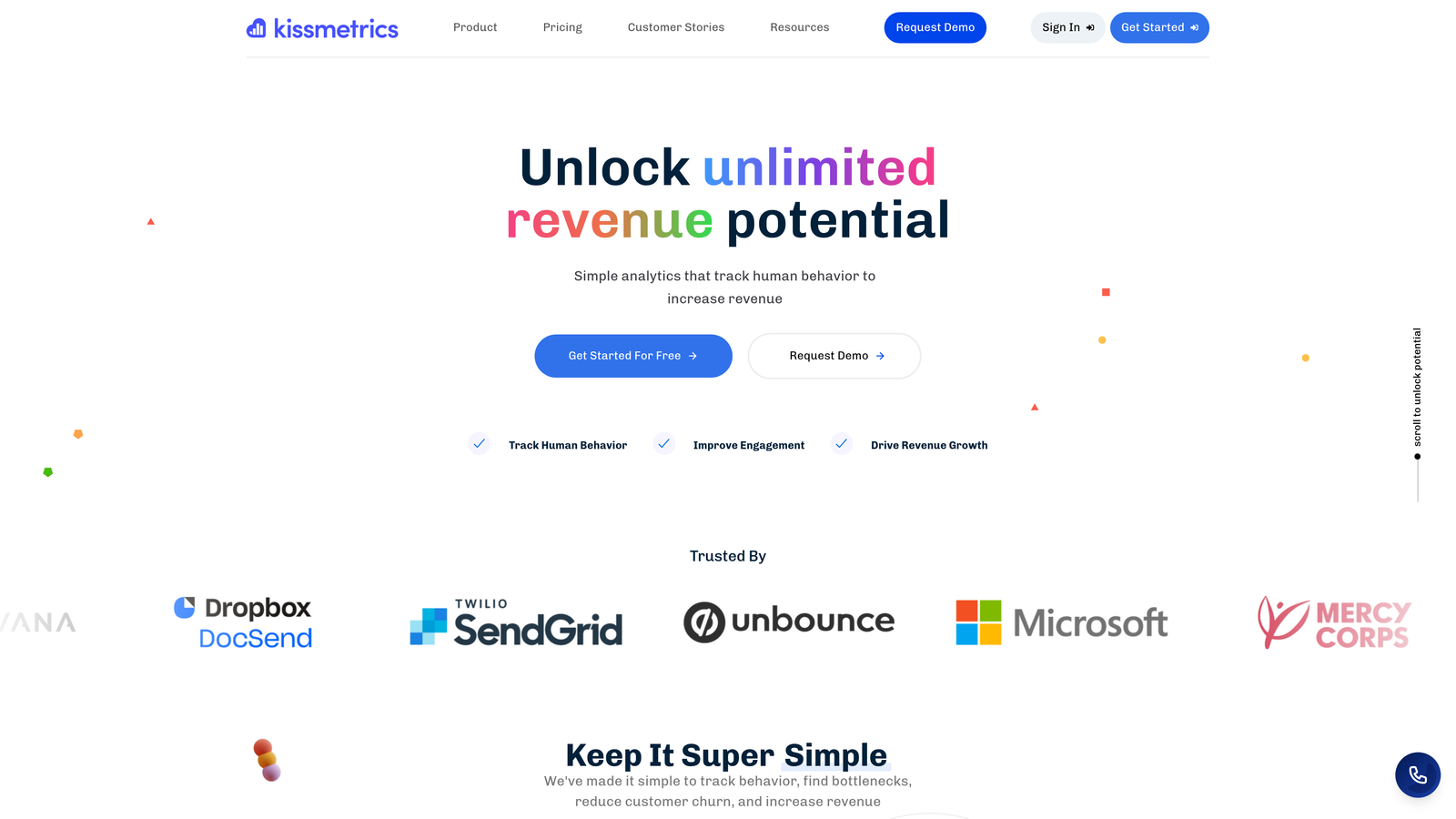
Kissmetrics is designed to help businesses track individual customer journeys and measure lifetime value. This focus on customer-centric analytics provides marketers with the data needed to enhance relationships and drive retention.
1. Funnel Analysis: Kissmetrics allows businesses to visualize the customer journey and identify drop-off points in the sales funnel.
2. Cohort Reports: These reports help businesses understand how different segments of customers behave over time.
3. Retention Tracking: Kissmetrics provides insights into customer retention rates, helping businesses refine their strategies for keeping customers engaged.
By integrating Kissmetrics with your web and app platforms, you can track user interactions and analyze this data to gain insights into customer behavior and preferences.
Kissmetrics offers various pricing options tailored to different business needs, making it accessible for e-commerce companies looking to enhance customer relationships.
Kissmetrics is particularly well-suited for businesses that prioritize understanding customer behavior over time. Its detailed analytics can help marketers tailor their strategies to increase retention and lifetime value.
Best for: Data analysts needing powerful visualization tools.
Tableau provides tools for effective data visualization, enabling marketers to make sense of complex datasets.

Tableau is a leading data visualization tool that helps businesses create interactive dashboards to represent data visually. This capability is crucial for marketers who need to present data insights clearly and effectively.
1. Dashboard Creation: Tableau allows users to design custom dashboards that focus on key performance metrics relevant to their business.
2. Data Integration: It can connect to various data sources, making it easier to aggregate information from different platforms.
3. Real-Time Analysis: With Tableau, marketers can analyze data in real-time, ensuring they have the most current insights available.
Users can import data from various sources and use Tableau's visualization tools to create interactive reports. These reports can be shared across teams, enhancing collaboration and data-driven decision-making.
Tableau offers different pricing tiers based on user needs, including options for individual users and large teams.
Tableau’s ability to visualize complex data makes it an essential tool for marketers aiming to communicate insights effectively to stakeholders. Its interactive dashboards allow for deeper engagement with data.
Best for: Digital marketers looking to optimize both SEO and PPC strategies.
SEMrush offers comprehensive analytics for both SEO and PPC, helping marketers enhance their online presence.
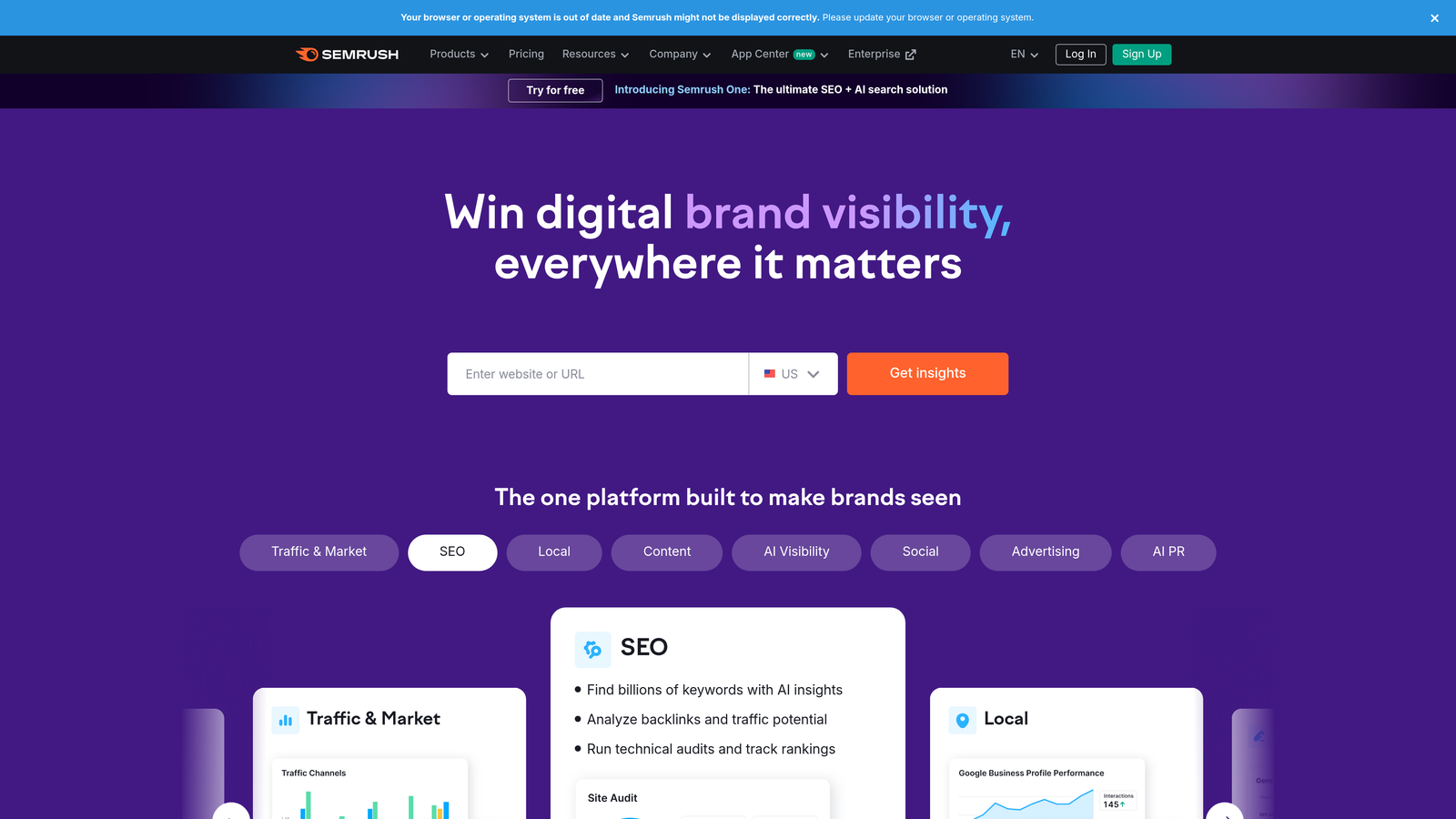
SEMrush is a multifaceted tool that integrates SEO and PPC analytics, providing marketers with the tools to optimize their online visibility. Its comprehensive nature makes it suitable for a wide range of digital marketing efforts.
1. Keyword Tracking: SEMrush allows users to track keyword performance, helping businesses optimize their content strategies.
2. Site Audits: The platform offers tools for conducting thorough audits of your website to identify SEO issues.
3. PPC Analysis: SEMrush provides insights into paid advertising campaigns, enabling marketers to refine their strategies for better ROI.
Marketers can use SEMrush to analyze both organic and paid search performance. By leveraging its analytics, businesses can adjust their strategies accordingly, ensuring maximum effectiveness.
SEMrush offers a variety of pricing plans to accommodate different types of users, from freelancers to large enterprises.
With its dual focus on SEO and PPC, SEMrush is an invaluable tool for digital marketers looking to enhance their online strategies comprehensively. Its detailed analytics help businesses understand where to invest their marketing resources for maximum impact.
The need for powerful marketing analytics has never been more critical. Marketers are inundated with data from various sources, and without the right analytical tools, it can be challenging to make sense of this information. Effective marketing analytics empower marketers to make informed decisions, optimize campaigns, and ultimately drive better results.
One of the primary reasons marketers require advanced analytics is to understand customer behavior. By analyzing data, marketers can identify patterns and trends that reveal how customers interact with their brand. This insight allows for the creation of targeted campaigns that resonate with the audience, increasing engagement and conversion rates. For instance, many businesses leverage customer segmentation analytics to tailor their messaging, ensuring it speaks directly to the needs and preferences of different groups.
Moreover, powerful analytics tools facilitate real-time tracking and reporting. This capability enables marketers to monitor campaign performance as it unfolds, making it easier to adjust strategies on the fly. For example, if a particular ad is underperforming, marketers can quickly pivot to different messaging or channels, maximizing their return on investment. This adaptability is essential in today's fast-paced marketing environment, where consumer preferences and market conditions can change rapidly.
Additionally, robust marketing analytics foster accountability within teams. By utilizing data-driven insights, marketers can justify their strategies and expenditures to stakeholders, demonstrating the impact of their efforts on overall business objectives. This transparency not only builds trust but also encourages a culture of continuous improvement, as teams can learn from past campaigns and refine their approaches moving forward.
In summary, powerful marketing analytics are indispensable for marketers aiming to enhance campaign performance. By providing deep insights into customer behavior, enabling real-time adjustments, and fostering accountability, these tools help marketers navigate the complexities of the digital landscape and achieve their goals effectively.
In today's data-driven environment, selecting the right analytics tools is crucial for effective marketing. Each tool listed here offers unique features that can significantly enhance your understanding of customer behavior and campaign performance.
From Cometly's comprehensive tracking capabilities to Google Analytics 4’s free, robust insights, these platforms cater to various marketing needs. Adobe Analytics provides enterprise-level insights, while HubSpot combines automation with powerful analytics. Mixpanel, Kissmetrics, Tableau, and SEMrush each bring their strengths to the table, addressing specific challenges faced by marketers today.
As you evaluate these tools, consider your specific business needs and how each platform can help you achieve your marketing goals. Investing in the right analytics solution can lead to improved decision-making and increased ROI.
To explore how Cometly can revolutionize your marketing analytics, get your free demo today and start capturing every touchpoint in your marketing efforts.
Learn how Cometly can help you pinpoint channels driving revenue.
.svg)
Network with the top performance marketers in the industry